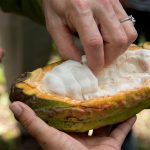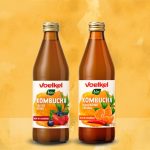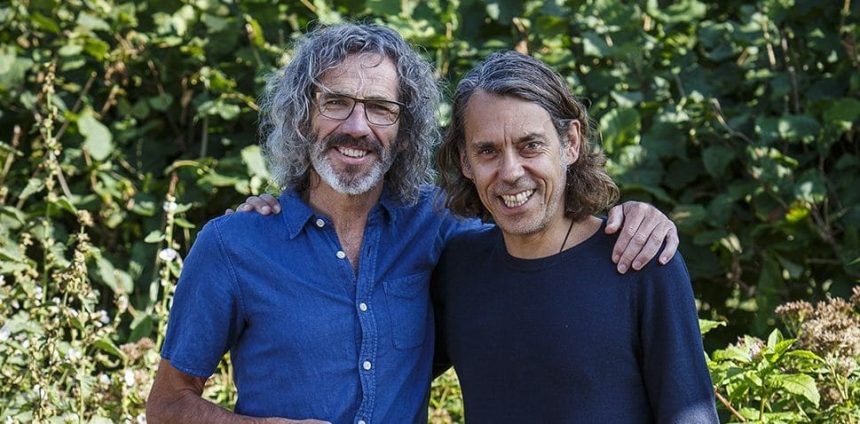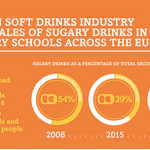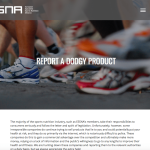News that Pukka Herbs has been sold to the Dutch-British transnational Unilever has taken the UK natural and organic sector by surprise. Here, Pukka’s co-founders Tim Westwell and Sebstian Pole talk expansively with Natural Products Global about organic, sustainability and being part of sixth biggest FMCG company in the world.
Natural Products Global: News that Pukka had been sold to Unilever took the natural and organic industry by surprise. So I wanted to ask you about the prehistory of the deal – was it a long time in the planning, and why in the end did you decide on Unilever as a buyer?
Tim Westwell: Pukka’s been on a big journey over these past 16 years, growing fast and developing bold global ambitions. But at the heart of the business is our mission – of doing good in the world through commerce. And 16 years on, the mission continues.
But we need help. In the beginning, Tim and I did everything at Pukka Herbs. Now there are110 of us. And as we grow and develop we need more expertise and more skills. And we need more money, actually. One of the options was to go down the private equity or VC route. But there you have people wanting to maximize the return in three or four years. And we just didn’t want to climb onto this merry-go-round of maximizing value.
Sebastian Pole: “What we were looking for, was to get a really good home for Pukka – for the long-term future. Tim and I can’t own Pukka forever. And the timing is good now, because it allows us to be in the middle of the business, steering it, and directing it into the future.
NPG: Did you consider other, more progressive future funding models. For example, employee ownership – the route that Riverford have taken?
TW: We gave serious consideration to all available routes and eventually came to the conclusion that Unilever was the only option that would enable us to maintain our philosophy and approach. An employee ownership route wouldn’t be fair as it saddles everyone with debt and also wouldn’t offer us the opportunity for the sustainable scale we want.
NPG: You say you will be staying on to steer the ship. Under your contract with Unilever, how long will you be in post – if that’s something you can talk about?
SP: We can tell you that completely. We’re not tied into Pukka – we never have been. We’re here voluntarily. We’re here because we want to be here and we’ll carry on doing it for as long as it’s rewarding us personally – on a nourishing, deeper level – and for as long as we’re bringing positive impact to the business and its people.
We’ve got an expert team at Pukka. Pukka is not just about Tim and Sebastian. There are a lot of serious experts here and as they grow in their capacity it means we’ll be freer to be out there, championing the organic movement and championing the benefits of herbs in people’s lives.
We’ve got a cast iron commitment on our values into the future that doesn’t place a time limit on organic and Fair For Life, and we’re here for the foreseeable future.

NPG: So, can you describe in a bit more detail how Unilever ownership marries with your personal ambitions for Pukka.
TW: Well, just look around the world, at the events that are going on. Climate change, exceptional weather events, hurricanes, floods. There’s an urgent need to accelerate sustainability and really increase the amount of land under organic production.
This partnership gives us the opportunity to scale our demands around the world. It also gives us the ability to draw on some real expertise on supply too. For three or four years we’ve been developing our agricultural modeling. Coincidentally – maybe ironically – for the last or three years we’ve been using the Unilever Sustainable Agricultural Practices Programme. Simply because it’s one of the the best in the world – although, of course, we already have our organic practices.
SP: Despite some of the challenges and criticism that have been around, understandably, in our sector over the past few days, they – Unilever – are leaders in changing how sustainable agriculture happens.
Do they have a bit of a way to go with organic? Yes, of course they do. Are they committed to making the change? In terms of large corporates, they’ve been number one in the world in developing values for sustainability, for over 10 years.
NPG: Some people in our sector, say, look at the history of organic businesses that sell to large corporate. They see their values co-opted, then diluted.
SP: We’re specifically protected against that – it’s in our contract. Being an organic business is the essence of Pukka. I’m entirely confident in the contract we have with them. And I’m confident about their people. Paul Polman, the CEO, and other senior executives, have all written to us confirming that they recognize the challenge we’ll face in communicating this, and confirm that there is a commitment from the top to help Pukka become the business we want to be. And the point is that we were going to do this anyway, change, grow. The reality is, we haven’t been a small cosy business for a long time. We’ve been making millions of teas and supplements for years now – and we’re going to keep doing that into the future.
TP: Of course, yes, there is an important contract drawn up by top lawyers. But in a way what is more important is to have the opportunity to show that, together, we’ve built a very successful business on organic principles and with sustainability at its heart – and demonstrate that this is the way that you can run a business in the future.
We’ve met the Unilever team. We’ve got to know them. They’re good, solid people who want to change the world, really. They’re already putting sustainability at the heart of what they do. Paul Polman is at Davos, the G7, COP 21 making the case for that. How many companies of their size have a commitment to be carbon neutral by 2030? Think of the impact of that, if it’s achieved.
“Only 1.4% of the food that’s sold in the UK is organic. I’m sorry, but we can’t just cater to the minority. There is a global crisis”
And there’s something else that’s really important here. Only 1.4% of the food that’s sold in the UK that’s organic. I’m sorry, but we can’t just cater to the minority. There is a global crisis. At Pukka we want to reach out. I can understand the grass roots surprise among people, and we absolutely want to keep on serving the independents. But there’s a bigger mission here – to serve people, plants and planet.
NPG: Why do you think that organic in the UK is stuck at 1.4%, and hasn’t been able to shift that on?
SP: I think it’s partly perception, isn’t it? I think it’s partly a closed mindedness to change. In Germany, organic’s share is 7%, in America its 5%, in Scandinavia it’s close to 10. So I think I think it’s got to be a cultural thing in the UK. Because the quality is good, organic here is good value and we’re one of the wealthiest countries in the world.
TW: But I think there is also something else going on. If you look around the world, at say Germany or America, there is a much more level playing field. In retail in the UK there is a dominant supermarket model, that we all know about, and that exerts a strong influence on the distribution of organic products.
There are 2,500 bio – organic – stores in Germany, for example. And just a handful in the UK. So it’s partly a mindset issue but it’s also about the power of effective distribution. If we we can work with people who can create influence with these guys, then that’s a real opportunity I think.
SP: The other opportunity for organic to grow, is seeing the independents expanding their range of stores, which some have been doing with great effort. That’s another way we can reach more people with organic.
NPG: Unilever have said that it sees Pukka as a “scalable” business. That’s often shorthand for ramping up revenues and minimizing increases in costs. Given the commitment you have to schemes such as Fairwild, and protecting local ecosystems, is Pukka scalable is the way that a large corporate would understand?
TW: I think Pukka is a scalable business. But it takes time and planning. We’ve developed some quite sophisticated computer systems here. We do forecasting three or four year ahead. So there won’t be any knee-jerk decisions. We won’t suddenly be going into Russia or South America with herbal teas next year. We look for planned and thoughtful control of our growth. We’ll now be able to use systems that we have, and the systems they have, to do that in a measured way.
The main reason we picked Unilever as a buyer is that they a company with very long history – dating back to 1894 – who are in this for the long haul. We’re completely confident that they will look at scaling this development in a way that’s sustainable.
NPG: Reaction to the sale has been mixed. Some very supportive, some quite hostile. How do you read that initial reaction?
SP: Among those people who are really immersed in discussions around business and sustainability – people like Jonathon Porritt, Rob Verkerk, Giles Hutchins – there has been a lot incredible support. There’s been a bit of a knee-jerk response from some people, understandably. People who mistrust Unilever and think that big business can’t do any good.
I think on whole it’s been a balanced reaction. There have been some painful comments – and social media creates a space where it’s easy to judge. Tim and I love Pukka with all our heart. We’d never want to do anything to damage her. So I think it’s about information. We need to explain that we understand that some people have been genuinely shocked. But also be clear that we are entirely confident that we’ll able to carry on serving everyone.
NPG: Whenever a pioneer organic company sells to a large corporate there are accusations of selling out. How do you see the wider question of ownership?
SP: We’re not going to change things overnight, as a company or sector. But I think we need to be in dialogue with people that we perhaps don’t agree with to understand perspectives and create change. At Pukka, we’d rather be at the table
And, OK, people been saying we’ll just lining the coffers of Unilever. Well, if they’re a company trying to make some significant environmental changes and help the planet and they’ll use that money for good, then I just see that as a benefit. So I think we need to widen our horizons a bit.
We’re really excited that we can challenge the staus quo. Pukka have always been a challenger, and we’ll remain a challenger. We’ve just got to being 20% of the UK herbal tea market and we’ve got an opportunity to really push and grow that further – which we would do anyway. We can just do it quicker and faster. And we can engage in a dialogue with big business and also create lots of opportunities for our staff here at Pukka.
” … people been saying we’ll just lining the coffers of Unilever. Well, if they’re a company trying to make some significant environmental changes and help the planet and they’ll use that money for good, then I just see that as a benefit”
There’s a lot to consider in owning a business. Having started Pukka with £4k, 16 years ago, we’ve now got a responsibility to a lot of people. And people can say we’ve sold out, but for me we’re selling in.
NPG: Selling in?
SP: Well, for me, business and life are all about relationships and communication. And as Pukka Board members, still steering the ship – but as part of Unilever’s global tea group – we will be able to bring some influence to really big global mission.
And we’ve got an incredible privilege with Pukka being so successful. It gives Tim and I a huge personal responsibility and we feel that we can either carry on on the outside, in our little organic world, our 1.4% of reality, or we can cross that threshold and engage in peaceful dialogue with a group of commercial people who are looking to change the direction of a huge tanker
They – Unilever – have got huge consumer reach and their simple proposition is ‘the world can be a better place’ if individuals change their behaviour. And that’s the organic community’s proposition as well.
“So, we’re not conventional and we’re not planning on changing. In fact, we’re planning on being the little upstarts we’ve always been!”
And actually, the really important thing is the difference all this has on the ground. We work with thousands of farmers and our plan is to work with tens of thousands of farmers. We’ve already got tens of thousands of acres of land that are organic and we want to move to a situation where we have hundreds of thousands of acres of land that are organic.
NPG: I think a lot of people would agree that Pukka has created something quite special, and built a very brand-loyal following of consumers and supporters. Can the business keep its ‘personality’ and its unconventional edge under its new ownership?
TW: In the end this is all about potential of widening out our original mission of being able to contribute to conservation through commerce, and the very simple idea of healthy people, health planet. It’s about the potential for our farmers and growers, for our staff here at Pukka, and for our customers – in helping them fulfill their health and happiness using our teas and supplements. That’s the platform, and now we’re just putting more ingredients into that mix. There’s also the potential to be more visible, and get national press interest, extending that ability to influence.
SP: Tim and I recognize that we are slightly extreme, and that Pukka is a different type of company. How many businesses give 1% of their sales away to environment charities because they love the Earth so much and they feel a responsibility for what they do? On top of that we’re already organic and Fairtrade. So, we’re not conventional and we’re not planning on changing. In fact, we’re planning on being the little upstarts we’ve always been!


